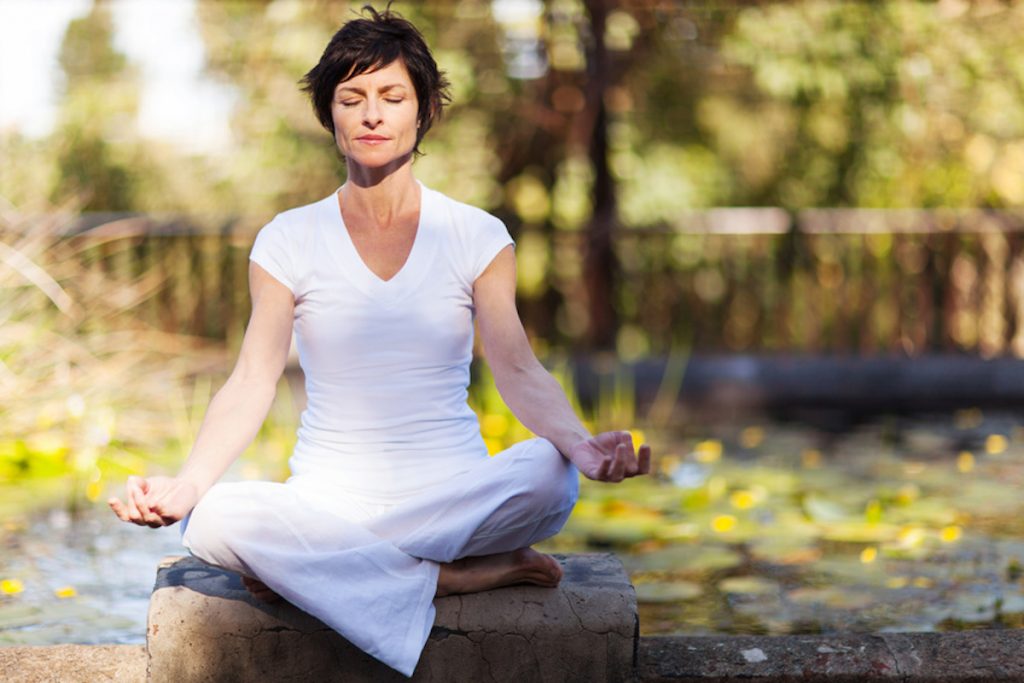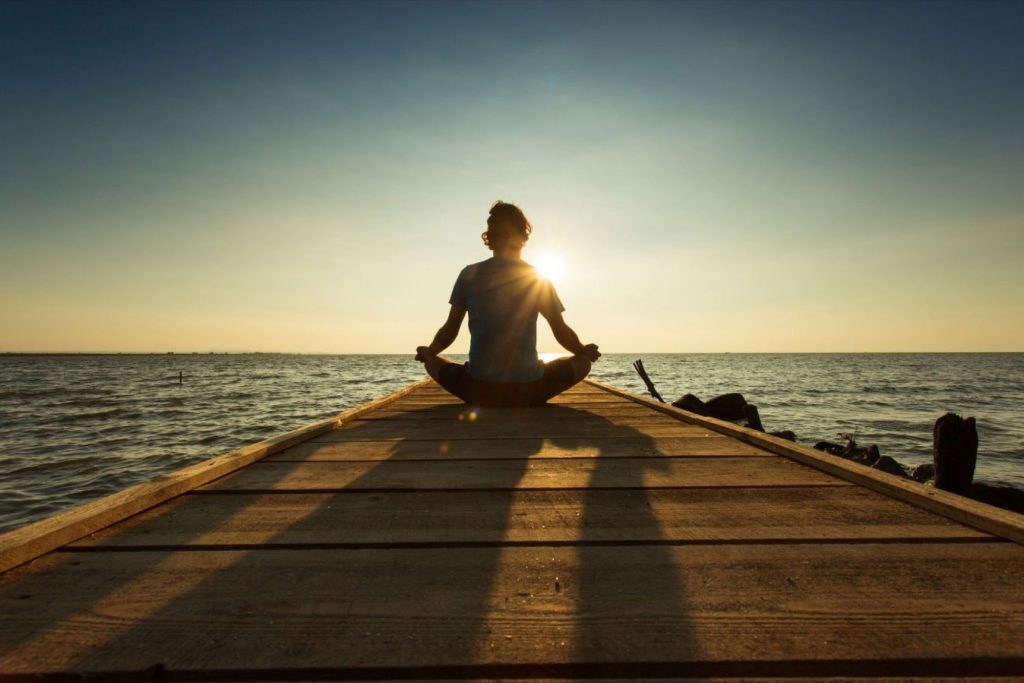
A presiding feature of the modern world is that it’s an extremely busy place. Planet Earth is a huge 24/7 hive of activity – with all of humanity working, shopping, tidying and socialising throughout the day, and deep into the artificially-lit night.
When you start to quantify just how much is going on at any given time, the numbers can be mind-blowing. There are 7.6 billion people, 1.2 billion cars, 1.9 billion smartphones and 36,899 branches of McDonald\’s serving 68 million customers every day. With all this rushing by, it’s no wonder that catching a few moments of calm is by no means guaranteed.
And the thing about all this is that it’s relatively new. Only a hundred years ago, there was about 6 billion fewer people, zero smartphones and not one sinister clown selling burgers (we presume). It’s clear that the globe is an awful lot more hectic than it once was, and the result is an environment where we have to consciously carve out moments of serenity where we can.
Our ancestors could take a certain amount of peacefulness for granted, which isn’t necessarily true for us in the modern day. We live in a very different place than the inhabitants of pre-industrial England, who would have shared the whole country with less than half of the current population of London, and probably heard few things louder than church bells. But being calm every day is still possible – if we know the right way to do it.
Seeking nature
We are, for the most part, separated from nature. Here in the UK, 90.1% of the population lived in a city in 2010, and by 2030 this is set to rise to 92%. City dwellers appear to experience greater issues with mental health than their rural counterparts, suffering a 40% increased risk of depression and double the rate of schizophrenia, according to the Centre for Urban Design and Mental Health. Whether it’s living in high rises, constant noise or lack of community, there seems to be something about city surroundings which make us feel stressed out.
The mental health charity Mind extolls the many benefits of getting out in nature, and green, leafy spaces can be incredibly soothing. But we don’t always have to hop on a train to the countryside in order to feel the benefits – we can bring a little more nature into our lives with simple everyday changes.
A 2008 study found that people recovering from surgery that have flowers in their room felt less anxiety than those who didn’t. Similarly, having more flowers around your home could help you create a more relaxing atmosphere. The act of caring for plants can also be very therapeutic, so keeping them in your living space or spending more time in the garden will provide plenty of calming, mindful moments.
While they may at times add a certain amount of chaos to our lives, pets can also be a source of calm. Having another (and rather different) living being around can take you out of your worries and into the moment, whether it’s laughing at a dog’s exuberance or staring into the fascinating otherworld of a goldfish bowl. Of course, this is less true when your cat has upended the bin in search of chicken bones, but you can argue it’s worth it for all those quiet moments with them purring in your lap.
The problem with time
It isn’t only the physical separation created by increased urbanisation that affects us. Rather than living in tune with the natural world, we work to a man-made schedule which has little in common with anything our hunter-gatherer or agricultural forebears experienced. Time pressure is a great cause of stress and frustration, and it is almost entirely artificial – a modern construct that doesn’t actually reflect the reality of our existence.
When the 40-hour work week was introduced, it represented a huge step forward for exploited people working 14-hour days. Yet as technology has advanced (and we can complete far more in less time) our working hours haven’t been reduced, despite grand visions in the 50s and 60s of humanity being freed from labour. The reason for this, some people argue, is those who feel short of time make better consumers, buying convenience and easy entertainment in order to maximise the limited free time they have.
Stopping the clock
Whatever the source, the fact remains that it’s a perceived lack of time which stops many of us from truly pausing and living in the moment. We’re so used to compartmentalising our day – we go to the office for work time, sit down for dinner time, head to the gym for exercise time – that we forget that we don’t have to schedule enjoyment or relaxation. We don’t have to be on holiday to catch moments of calm – we can find them throughout the day.
One way to do this is to avoid the impulse of using every spare second to tick things off your to-do list. If you are the sort of person who cleans out the fridge as your pasta cooks, or answers emails while you are on hold, it can be worth trying to go a little slower and appreciate quiet moments for what they are. Rather than trying to optimise every second, and focus purely on productivity, allow for rest as much as you can.
Even something quite dull like hanging out the laundry or doing the washing up can be strangely peaceful – if we simply stop trying to do eight other things at the same time and focus on the task in hand – appreciating perhaps the afternoon glow of sunshine or feel of warm water on our hands.
Stemming the tide of information
If we think about how often we check our phones – reading news stories, scrolling through social media and checking our notifications – we realise just how much time these little devices are taking up. And along with all that time there’s the mental energy we invest as well, where we find ourselves constantly processing and reacting to information we’d otherwise be completely oblivious to.
This isn’t to say that being informed is a bad thing – our smartphones are undeniably useful in many ways – but the endless deluge of content we’re presented with now is often overwhelming. Learning to switch off our phones is a key part of switching off in general, and it’s important to practice just sitting with ourselves in quiet moments, rather than looking for the easy distraction provided by technology.
It’s something nearly everyone does, but in those five minutes here and there throughout the day where you find yourself with nothing to do, it’s likely that you pick up your phone. This isn’t a negative all of the time, but you can embrace calm and quiet by taking in the opportunity to look around you, rather than down at a screen.
Our brains don’t need to be constantly engaged, and by breaking the habit of constantly seeking information, we give ourselves a much better chance of relaxation – ultimately helping us reach the goal of being calm every day and making us happier people.

The Benefits of Beeja Meditation
- Reduce stress and anxiety
- Greater clarity and calm
- Increase focus
- Enhance relationships
- Sleep better
- Feel energised



